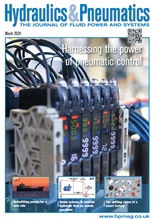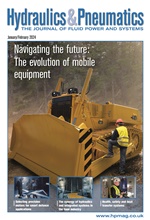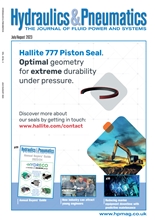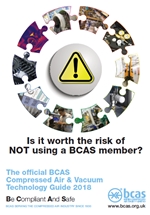EAMA holds industrial digitalisation reception at the House of Commons
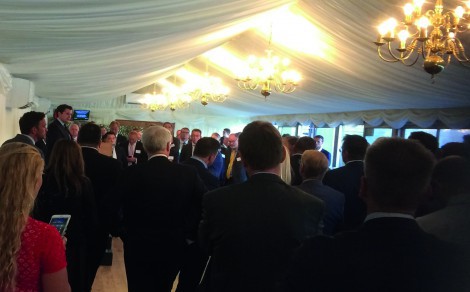
The Engineering & Machinery Alliance (EAMA) held an evening reception at the House of Commons this month to help to promote an understanding of manufacturing and engineering among MPs and to win their support for a host of different issues, including digitalisation.
The well-attended reception was hosted by Alan Mak, MP for Havant and chair of the All-Party Parliamentary Group on the Fourth Industrial Revolution. Speakers included Dr Juergen Maier, chief executive of Siemens plc, who led the Made Smarter review of industrial digitalisation for the Government; Martin Walder, EAMA chairman; and Robert Jenrick, exchequer secretary to the Treasury responsible for growth, productivity and the Industrial Strategy.
The reception was held on The Terrace at the House of Commons, overlooking the Thames. Guests were given the opportunity to talk to MPs and network with other colleagues and companies from industry. The theme of the event was ‘UK Industrial Digitalisation – what it means for engineering companies’.
Jack Semple, secretary of EAMA, took to the podium to introduce Alan Mak as host of the event. Mak commented that improving the profitability of SMEs is key to boosting economic growth. This, he said, is why organisations such as EAMA are so important; helping companies to engage with Government but also helping to share best practice among the most successful businesses in their respective sectors. “The UK has thousands of innovative and productive SMEs at the cutting edge of digital industrialisation, but we also know there is a long tail of SMEs that are falling behind,” he remarked. “The Government is determined to tackle this issue by raising business productivity as part of our modern Industrial Strategy. The Government-backed Made Smarter Review – led by Dr Juergen Maier who is here today – recognises the need to encourage adoption of digital technology by SMEs to make sure these companies stay amongst the best in the world.”
Martin Walder stressed it is extremely important that manufacturers engage with politicians on a regular basis to make them aware of what they do and make them realise why digitalisation within manufacturing needs to prosper in the UK in order for these companies to compete effectively on a global basis over the long term. “It is our responsibility and it is in our interest to put a very positive case for digitalisation in the UK, particularly when, in the face of negative media reports that associate automation with the loss of jobs, many are missing the larger point,” he said. “Digitalisation will change many things – not least some of the cultural elements of business – but ultimately there are far more positives for us than negatives. Embracing digital is imperative for the strength of our economy going forward and to develop our position on the global stage. When you look at the rapid adoption rates in China, South Korea, Germany and the US we need to work fast.”
Disruption is happening
Dr Juergen Maier commented that disruption of a digital kind is definitely happening within manufacturing. “Hopefully you are feeling that disruption, because the worst possible scenario is that you’re not feeling it,” he said. “Not feeling it means you are being disrupted somewhere but it hasn't hit you yet. In other words, some people are doing things to you – they might be applying data analytics, additive manufacturing, robotics or electronic control or whatever to your products or services and are in a position to do things better than you.” He added that this is why it is so important to keep pace with the fourth industrial revolution; to invest in R&R, to create home-grown IP and to be competitive globally.
Robert Jenrick said this is a great time to be in business because the rules of the game are being turned upside down. “Those are the moments of greatest opportunity, but there are also very significant challenges and if British businesses fail to get this right – if they fail to be creators and adopters of new technologies – then we will be outpaced by our competitors and we will see British jobs lost. So, the Government is focused 100% on how we can ensure that as the pace of technological change increases…the Government supports you to create the conditions you as an industry need to succeed.”
EAMA comprises a grouping of 13 like-minded trade associations: Agricultural Engineers Association; British Automation & Robot Association; British Compressed Air Society; British Fluid Power Association; British Plastics Federation; British Turned Parts Manufacturers Association; GAMBICA; Gauge and Toolmakers Association; Manufacturing Technologies Association; Printing Industry Confederation; Processing & Packaging Machinery Association; Solids Handling & Processing Association; and UK Industrial Vision Association.
-
Smart Manufacturing & Engineering Week
05 - 06 June, 2024
NEC, Birmingham -
HILLHEAD 2024
25 June, 2024, 9:00 - 27 June, 2024, 16:00
Hillhead Quarry, Buxton, Derbyshire UK



